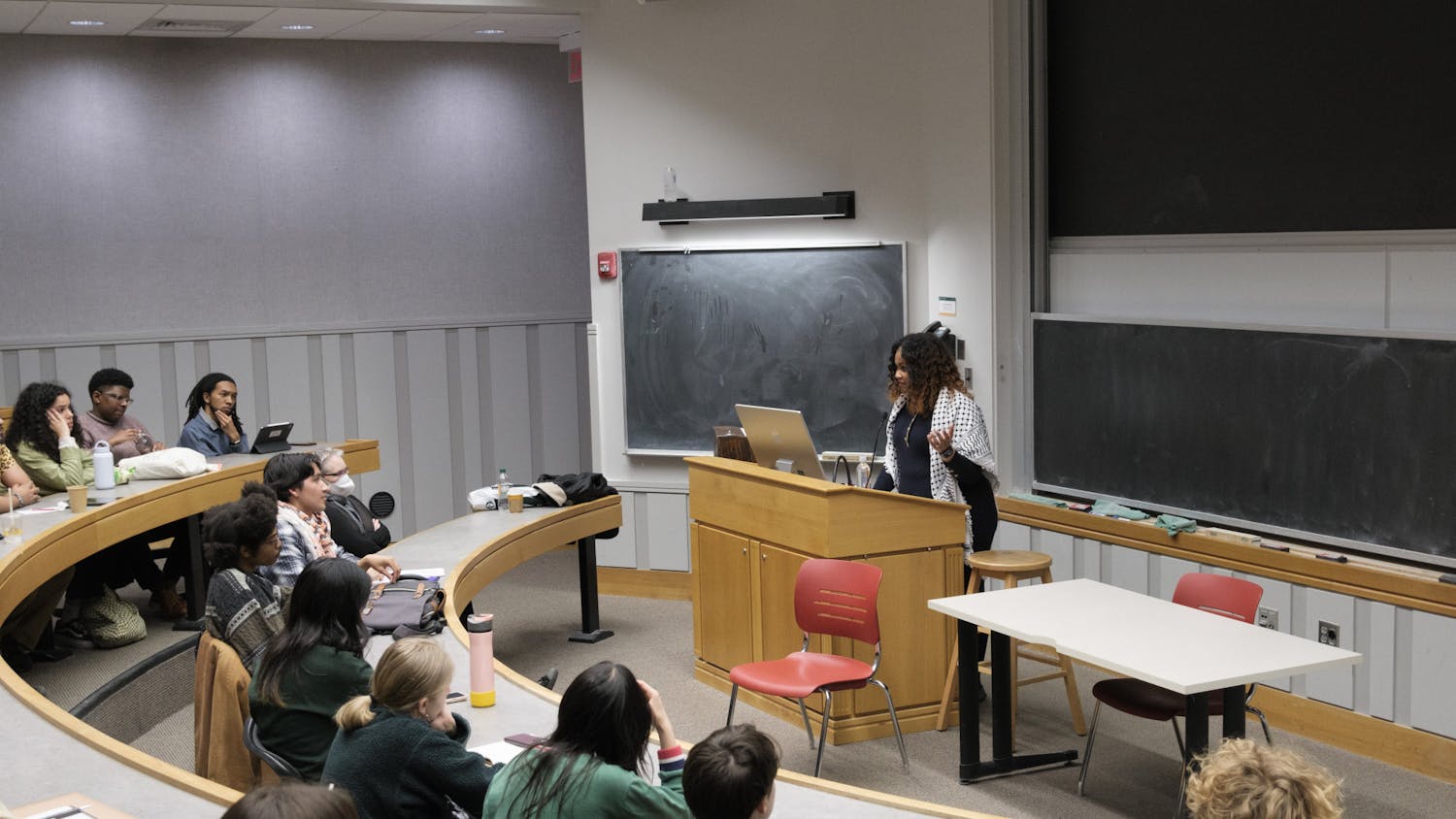Ezekiel Emanuel, chair of the department of bioethics at the National Institute of Health Clinical Center, described his proposal to reform the U.S. health-care system by replacing employer-based insurance with a universal voucher system, in a speech Monday afternoon in the Haldeman Center.
Emanuel's Guaranteed HealthCare Access Program would grant every American a voucher to access a "standard benefits package" through an insurance company or health-care provider, he said. Anyone who fails to choose a plan would be assigned one, so that no one would go without insurance. The system would be funded through a tax on goods and services.
The freedom to choose between several providers is in line with the country's ideals, Emanuel said.
"As Americans, we're used to lots of choice," he said. "We go to the supermarket and buy one of 30, 40, 50 jams."
Emmanuel said his voucher system would increase financial responsibility in the health-care market.
"Competition among health plans will lead to heavy emphasis on cost-effective care," he said.
The immediate elimination of Medicaid and other "safety-net costs" through universal coverage and the phasing out of Medicare -- two components of his plan -- would substantially decrease current tax levels, he added.
"Linking health insurance to employment creates serious labor problems," Emanuel said, adding that employer-based insurance hampers the mobility of the labor force, leads employers to suppress wages and encourages outsourcing to places where employers can avoid providing health care.
Emanuel proposed establishing a national health board and 12 regional health boards to oversee the program. The boards would "contract with health plans, define and periodically update the basic required benefits package, inform Americans about their health-care options, reimburse health plans and collect data and research related to patient satisfaction, quality of care and risk and geographic adjustments for payments," according to Emanuel's 2005 article "Solved!," which he co-authored with Stanford professor Victor Fuchs.
Emanuel identified seven components of reform that must be incorporated into any new health-care system. The principles include universal coverage, controlled costs, quality of care, financing health care, helping the economy, choice of plan and political viability.
Currently 47 million Americans lack health insurance, Emanuel said, adding that 75 percent of those without health insurance live in households with at least one full-time employed adult. Nine million children are uninsured, he added.
"It is a tragedy; it is really disgusting that we have kids without coverage," he said.
Emanuel also discussed the paradox of health-care reform, saying that while people are typically unhappy with the health-care system, they are usually satisfied with their own coverage.
In 2006, the United States spent $2.1 trillion on health care, evidence that there is a serious problem in cost control within the health-care industry, he said. Emanuel illustrated the scope of this number with a series of rhetorical questions to the audience.
"How long ago was a million seconds? Last week," he said. "A billion? When Richard Nixon resigned from the White House. One trillion? 30,000 BCE, 15,000 years before anyone set foot on the North American continent ... We spend more on health care than China does on everything for 1.2 billion people."
Emanuel compared the health-care plans of both presidential candidates, and said he favors Democratic nominee Senator Barack Obama's plan.
Emanuel classified Republican nominee Senator John McCain's program as one of "quintessential incrementalism," which is attractive for its political feasibility, not its function.
Obama's plan focuses on the use of mandates, a policy Emanuel said will encourage universal health care and provide coverage to more people at a lower cost, citing findings from The Lewin Group, a non-partisan organization that researches health-care proposals.
Aine Donovan, executive director of the Ethics Institute at Dartmouth, organized the lecture. Donavan, who knows Emanuel personally, invited him to speak while he was on campus visiting his daughter, Gabrielle Emanuel '10.



